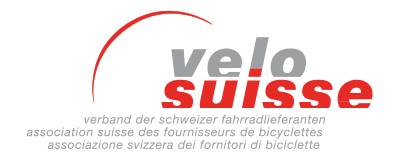Swiss e-mountainbike sales have doubled
2018 was the most successful year in the history of the Swiss bicycle industry in terms of e-bike sales. Every third bicycle sold is now an e-bike. A new sales record was set with 111000 units. The growth amounted to a whopping 27 per cent. The high-flyers were again the e-mountainbikes with an increase of 50.6 percent, while sales of conventional bicycles declined.
(SFVE) The record summer with long periods of fine weather until late autumn literally exploded sales of motorised bicycles in 2018. This is confirmed by the figures of the trade association velosuisse, which were collected from local manufacturers, importers, wholesalers and specialized markets. A total of 345`313 bicycles and e-bikes were sold. Compared to the also meteorologically beautiful 2017, this corresponds to a plus of 2.1 percent. The growth in e-bikes continued to gain momentum. From 2015 to 2016, sales had already increased by 14.1 percent in terms of units. In 2017, the increase was 16.3 percent. In 2018 the e-bike market could even grow by a whopping 26.9 percent. For the first time, significantly more than 100`000 e-bikes were sold in Switzerland within one year. In 2018, two conventional bicycles were replaced by one with electric drive.
E-Mountainbikes with the highest growth rates
In terms of increased sales, e-mountainbikes remain the frontrunners. After two years with increases of more than a third, the sales figure in the previous year increased by half to 43`220 units. But also the road e-bikes were more in demand. This time sales rose by 15.4 per cent to 68`441 units. As E-MTBs are preferably bought as light motorbikes (without matriculation, support only up to 25 km/h), this has an overall effect on the status of fast e-bikes (with moped number, up to 45 km/h). Their market share dropped from 19 to 14 percent within one year. Cargobike sales, on the other hand, have more than quadrupled to 1649 units for small quantities.
However, the good e-bike sales figures had an impact on sales of pure muscle bikes. Both the sports segment (excluding lights, mudguards and luggage racks) and everyday bicycles recorded significant declines of minus 3.4 percent and minus 12.6 percent respectively. But not across the board: racing bikes (+15.7 per cent) and mountain bikes with 29-inch wheels (+3 per cent) enjoyed greater popularity than in 2017. In the volume category of mountain bikes with 27.5-inch wheels, on the other hand, sales at a high unit volume level fell by 15.5 per cent and 8`230 units respectively. In the E-MTBs (up to 25 km/h), on the other hand, this category increased most by 11`157 to 32`669 units, which corresponds to a plus of 51.9 percent. Significant declines were also recorded for city bikes (-12,485), which, however, almost compensated for e-bike sales with a plus of 9,158 units (incl. Cargo). The trade should be pleased about these shifts. At an average of 3500 francs, an e-bike costs almost three times more than a conventional bicycle. This also increases the added value.
March 8th, 2019
